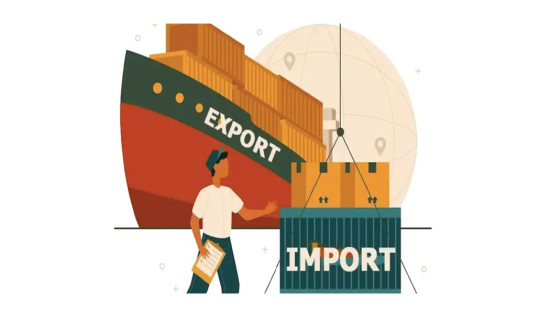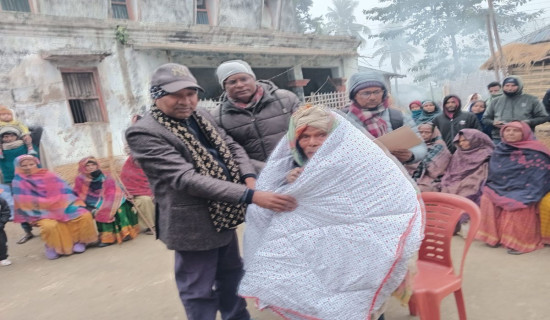- Thursday, 8 January 2026
Our Constitution: A Work In Progress
The proclamation of a new constitution by an overwhelming majority vote on September 20, 2015, culminated the Nepali people’s aspirations of having a charter prepared and promulgated by their own sovereign parliament. Our constitution is more than a legal document; it is a reflection of the country's aspirations and values, and it provides a path for establishing a just, prosperous, and modern society while protecting the rights and freedoms of all citizens. This constitution exemplifies the Nepali people's resilience and determination and lays the groundwork for a more inclusive and democratic future as it marks a watershed moment in Nepal's transformation from a monarchy to a federal democratic republic.
Federalism, republicanism, secularism, fundamental rights, inclusion and diversity, separation of powers, social justice and citizenship provisions, and a commitment to democracy are the characteristics of our constitution, which have determined the key concepts of the nation's governing structure as well as its legal framework. The charter also includes a mechanism for amending the constitution as needed, emphasising the constitution's long-term viability and adaptability.
Transformation
The constitution that transformed our unitary state into a federal democratic republican country brought a hitherto unseen level of political, economic, and social freedom. Many of the actors who were instrumental in the current constitution's preparation and implementation say that the country is now steadily advancing towards a new objective of wealth and growth based on the strength of all constitutional provisions.
However, despite being hailed for its progressive measures, Nepal's 2015 constitution has its share of critics. As the new constitution brought changes to the government structure, there has been unhappiness with various sections of the constitution. These days, there is a growing amount of unhappiness among a substantial number of Nepalis who think that federalism is not serving the people's interests.
The power imbalance between the federal, provincial, and local governments has also come to plague us, giving us the impression that federalism has not gone down well in a country of only roughly 29 million people. The central government retains immense influence, and municipal and provincial governments are sometimes forced to operate in accordance with central government decisions. In the context of Nepal's limited resources, federalism has proven to be a burden on the country's economy. Dealing with the administrative complications and costs associated with federalism has become a daunting effort for a country since it was carved into seven provinces. Similarly, insecurity in regional administrations and incidences of corruption linked to provincial government leaders and bureaucrats have put the federalist idea under scrutiny.
Similarly, in Nepal, which is predominantly a Hindu country, many individuals have criticised the charter for embracing secularism. Although a democratic government should never favour any religion since it gives that religion special leverage, numerous Hindus and Hindu organisations have criticised the constitution for converting mainly Hindu Nepal into a secular state. Several MPs from various political parties have raised concerns about secularism and have asked major parties and the government to eliminate the clause from the charter, which has so far been refused by the government and main parties.
Aside from the controversy surrounding the provision for secularism, some groups have criticised the constitution for making Nepal a republic. The decision to declare the nation a republic was a demand of the country's then-rebel Maoists, which was met following the victory of the 2007 uprising that forced the then-king to resign. With the first meeting of the Constituent Assembly on Jestha 15, 2065 BS (May 28, 2008), Nepal became a republic. However, within 15 years of eliminating the monarchy, political parties have come under fire for failing to do republicanism justice. Many politicians and parties have become power-hungry and corrupt, and tussles over power among significant parties are rampant, contributing to political instability. These events have provided pro-monarchy and pro-Hindu segments with an opportunity to berate political parties and leaders.
Constitutional provisions
Meanwhile, some constitutional provisions, such as the number of representatives elected to the parliament through the first-past-the-post system and the proportional representation system, have produced hung parliaments and given rise to frequent changes in the government, creating political instability. There is a growing demand that such clauses be amended for the betterment of the system of governance. While the constitution ensures fairness and impartiality from decision-makers, governments, parties, and leaders have also been accused of engaging in nepotism and favouritism in appointing officials and office bearers, giving rise to negative feelings among people.
The constitution has also been called into question over citizenship and inclusion concerns, as a large chunk of the population is still without citizenship, which has stopped them from having access to state benefits and facilities. Critics say the constitutional provisions on citizenship have been a source of contention, and the division of provinces has not properly addressed the complexity of Nepal's cultural and ethnic diversity, resulting in dissatisfaction and demonstrations in some areas.
Following the charter's adoption some nine years ago, Nepal experienced periods of political instability caused mainly by numerous changes in government. Similarly, while Nepal's constitution emphasises social justice and fair development, economic inequality remains a major concern. Economic growth advantages are not properly managed and dispersed, and marginalised populations continue to experience economic hardship. Many young people have been driven to travel overseas in quest of employment, higher education, and suitable living conditions as they lack easy access to education and livelihood back home.
Effective function
Meanwhile, our charter’s effective functionality has come under question regarding our territorial issue. Nepal's ties with its neighbours have been impacted by the ratification of a new map that has been enshrined in the charter in 2020, which has given a new turn to territorial issues with neighbouring nations, notably India and China. To lend the charter its needed significance, the parties and government must take this problem seriously and settle territorial issues through dialogue and mutual understanding.
All the above deliberations bring us to the basic fact: our charter offers both possibilities and difficulties.
The nation’s stakeholders must take cues from ongoing criticism and try to address it by working on revising and refining the constitution, which is indeed a work in progress. Any amendment to the charter, however, requires meaningful dialogue and collaboration between all stakeholders, which is key to addressing any flaws or shortcomings. It is essential that everyone involved in the process, including political parties, the government, civil society, constitutional experts, and the intelligentsia, engage themselves in ensuring that the charter functions effectively as a strong platform for the country’s growth towards a prosperous, just, and modern democratic society.
(Upadhyay is a former managing editor of this daily.)

















